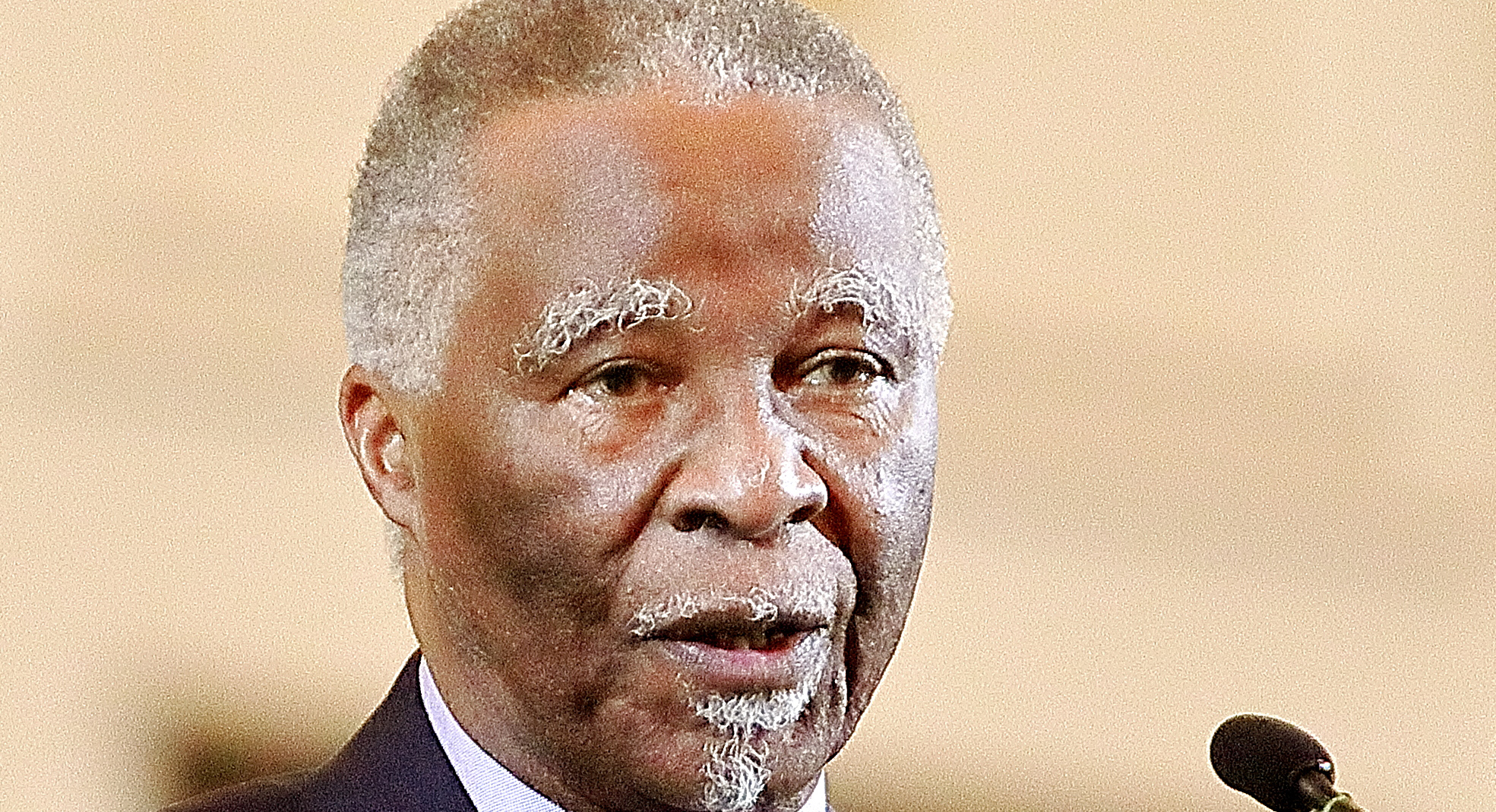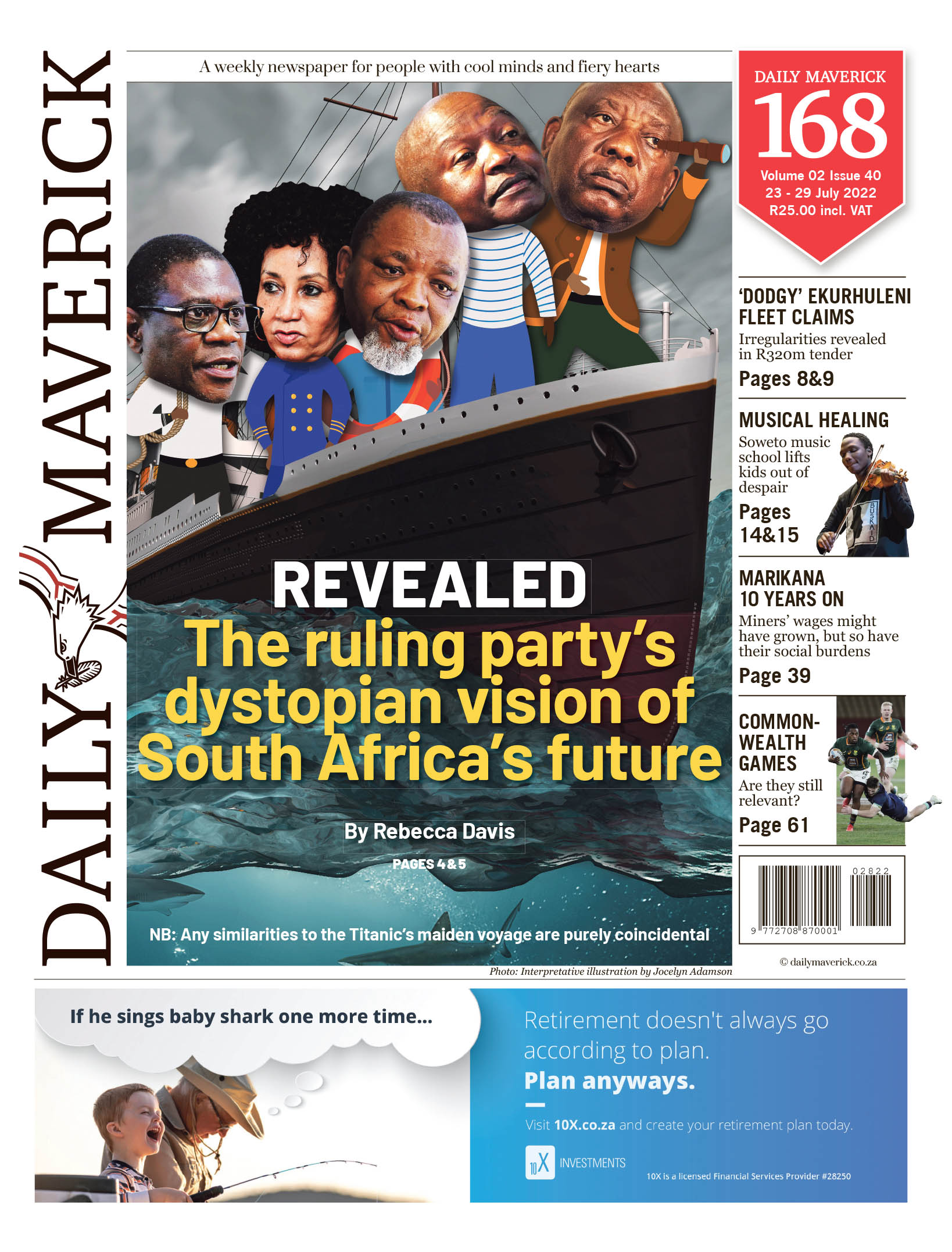The ANC does not simply want to govern South Africa. It wants to be “the leader of society”, to spearhead a “moral regeneration”, and to fight back against “social decadence”.
These are some of the aims contained in the policy papers tabled for discussion ahead of the ANC’s upcoming national policy conference. Although the language used is not new, with the expressed principles having been central to the ANC’s vision of itself for decades, the papers capture the sense of a party that seems ever more out of step with current realities.
The national policy conference is scheduled to be held at Nasrec in Johannesburg next week, against the objections of ANC employees who have not yet been paid their June salaries.
As reported by Daily Maverick, ANC head of the treasurer-general’s office Keith Khoza explained: “The scheduled conference will continue its business while the ANC tries to find donations to fund the staff salaries.”
The ANC’s internal financial woes illustrate the severity of the challenges faced both by the governing party, and by South Africans more widely, as the cost of living crisis exacerbates.
Against this backdrop, the party’s policy papers – heavy on ideology, but low on sensible ideas – seem woefully inadequate to address the country’s problems.
Thabo Mbeki: The ANC has no plan
This issue was made explicit by former president Thabo Mbeki this week, speaking at the memorial service for ANC deputy secretary-general Jessie Duarte in Johannesburg on Thursday, 21 July.
Lamenting the ANC’s inability to counter soaring unemployment and poverty, Mbeki said: “As a matter of fact, we don’t have a national plan to address these challenges …There is no national plan to address the challenges of poverty, unemployment, inequality. It doesn’t exist.”
If it did, the thousands of delegates expected at the ANC policy conference might have difficulty measuring its effectiveness.
The discussion papers state that no data or reports are available to assess, for instance, whether language policies relating to the school curriculum have been implemented.
They state that there is no information available on how many mobile schools and mobile clinics there are in SA, or whether learners are being provided with transport.
The papers state: “The ANC has not received during this reporting period accounts with data that indicate progress made to improving literacy and numeracy among learners.”
In the absence of such information, how are delegates supposed to assess whether key ANC policies are working? Perhaps as a tacit acknowledgement of the impossibility of such a task, the papers also recommend that ANC policies should only be reviewed every decade, rather than every five years as is currently the case.
 Thabo Mbeki, former president of South Africa, at the memorial service of ANC deputy secretary-general Jessie Duarte at Joburg City Hall on 21 July 2022 in Johannesburg, South Africa. (Photo: Gallo Images / Fani Mahuntsi)
Thabo Mbeki, former president of South Africa, at the memorial service of ANC deputy secretary-general Jessie Duarte at Joburg City Hall on 21 July 2022 in Johannesburg, South Africa. (Photo: Gallo Images / Fani Mahuntsi)
Pie in the sky
Mbeki may be correct that the party lacks a coordinated plan of action to tackle issues such as unemployment in a practical way – but the papers contain no shortage of scattered and impractical suggestions regarding all manner of South African challenges.
It is acknowledged in the policy documents that continued bailouts for state-owned companies cannot continue, and that some of these entities may have to be scaled back or dissolved.
But because public sector workers cannot be sent to join the 30% to 40% of South Africans in the “unemployment queue”, one suggestion is that these state employees “should be assisted with seed capital and support to establish their own SMMEs [small, medium and micro enterprises]”.
Where the money would be found for such a venture is unclear. Yet the papers at various points present proposals that seem premised on a bottomless Treasury.
The SABC, for instance, should not have to trouble itself with “commercial drivers” – advertising, licence fees, and so on – and instead should be “a fiscus-funded public broadcaster”.
Every household should be provided with “free basic [mobile] data” to “bridge the digital divide and create an inclusive society”.
The building of various large-scale heritage monuments, devoted to memorialising the liberation struggle, is envisaged.
Furthermore: “There is a need for a national Space policy.”
Railing against modern society
At certain moments, the policy papers give the impression of having been written by ageing academics.
When discussing current geopolitical trends, one paper notes with alarm the “denialism” shown by people in ignoring “the fact that China was in fact the world’s largest economy for a large part of the 19th century”.
Indeed, it is no exaggeration to say that parts of the papers are steeped in the 19th century, drawing heavily from one of that era’s pre-eminent thinkers: Karl Marx.
The ANC is concerned about the “crass materialism” and “individualism” that has taken root in modern society, particularly among the “parasitic bourgeoisie”.
Yet simultaneously, it is also critical of a “passive attitude” that has taken root among South Africans since 1994, which assumes “that every problem is government’s responsibility”.
Noting the difficulties the ANC experiences in transmitting its messages directly to the public, one paper states: “The desire to have independent platforms through which the party can communicate its views to the broad public, be it electronic, print or visual, has not borne fruit.”
The fact that social media is used for precisely this purpose by every other major political party in South Africa appears not to have occurred to the paper’s drafters: “This state of affairs is indeed untenable if the ANC must strive to be the leader of our society,” they lament.
In the paper devoted to “Digital Communication and the Battle of Ideas”, it is acknowledged that social media exists – but it is presented primarily as a terrain in which “attacks on the government and the ANC” are launched, “targeting performance in government, local and provincial administration in particular”.
In the same paper, the ANC voices concern that the decline in quality journalism in South Africa “has the potential to distort the hegemony of the ANC [and] the alliance [SACP, Cosatu] as the true leader of the national democratic revolution”.
The alarming implication is that high-quality media would present the ANC as entitled to govern South Africa indefinitely.
The same sense of entitlement to power is evident in the following description of local coalition politics: “The bitter reality is that [the ANC] has been kept out of government by the growing phenomenon of small opposition parties ganging up to keep the ANC out of office.”
Yearning for a one-party state?
Perhaps the most worrying implication of the policy papers is that the ANC may be fundamentally uncomfortable in a multiparty democracy – as well as deeply paranoid.
The coalitions keeping the ANC out of power in various metros, the papers state, are “on a crusade to obliterate the defining goals of our national transformation project”, and “all declare the demise of the ANC as the only primary reason they exist”.
An “ideological onslaught against the ANC using all forms of media” persists, claim the papers. “Unsanctioned” sharing of “crime news and reporting” needs “managing”.
It remains to be seen whether delegates to the policy conference will heed the warning sounded by President Cyril Ramaphosa in the introduction to the papers: that the ANC’s priority “has to be the improvement of the quality of lives of people, rather than an often narrow, internal party focus”. DM168
This story first appeared in our weekly Daily Maverick 168 newspaper, which is available countrywide for R25.





 Thabo Mbeki (former SA President) at the memorial service of ANC Deputy Secretary-General, Yasmin Jessie Duarte at Joburg City Hall on July 21, 2022 in Johannesburg, South Africa. Jessie Duarte passed away on July 17th after a long struggle with cancer and was buried on the same day as part of her Islamic faith. (Photo by Gallo Images/Fani Mahuntsi)
Thabo Mbeki (former SA President) at the memorial service of ANC Deputy Secretary-General, Yasmin Jessie Duarte at Joburg City Hall on July 21, 2022 in Johannesburg, South Africa. Jessie Duarte passed away on July 17th after a long struggle with cancer and was buried on the same day as part of her Islamic faith. (Photo by Gallo Images/Fani Mahuntsi) 